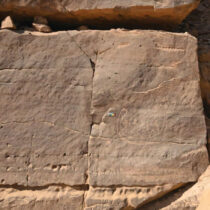The conference “Heterodoxy and Tradition. Conflict and Dialogue in Ancient Pagan and Christian Philosophy” due to take place on April 16-18, 2015 is organized by the Freiburg Institute for Advanced Studies, Albert-Ludwigs-Universität Freiburg.
How did ancient thinkers deal with diverging opinions and teachings, both within and outside of their philosophical schools? How did engaging with what one might call ‘heterodoxy’ shape philosophical, religious and cultural traditions? To what extent did ancient philosophers themselves think in terms of ‘orthodoxy’ and ‘heterodoxy’? By what mechanisms did thinkers distinguish, privilege, or exclude particular views? What were the social and political implications of these theoretical processes?
This conference aims to debate these questions with reference to philosophical developments from the 1st century BC through the 6th century AD. Both pagan and Christian philosophical traditions will be discussed, with particular attention to the interaction between them.
Organisers:
Angela Ulacco (Freiburg), [email protected]
Albert Joosse (Utrecht), [email protected]
Confirmed speakers:
Bert van den Berg (Leiden) Riccardo Chiaradonna (Roma Tre) Franco Ferrari (Salerno) Mareike Hauer (Leuven) Thomas Jürgasch (Freiburg) Alexandra Michalewski (Liège) Sébastien Morlet (Paris-IV) Jan Opsomer (Leuven) Helmut Seng (Konstanz) Ilinca Tanaseanu-Döbler (Göttingen) Teun Tieleman (Utrecht) Georgia Tsouni (Bern)
For more information or to pre-register, please contact Albert Joosse ([email protected]).
Conference Programme
Thursday, 16 April
15.15-15.45 Registration and coffee
15.45-16.00 Opening remarks
16.00-17.00
RICCARDO CHIARADONNA, Roma Tre: ‘The early Peripatetic commentators on Aristotle’s Categories and the previous philosophical tradition’
17.00-18.00
GEORGIA TSOUNI, Bern: ‘Heterodoxy and Agreement in the Hellenistic Peripatos’
18.00-19.30 Opening Reception (Frias Lounge / Terrasse)
Friday, 17 April
9.30 Coffee
10:00-11:00
ALEXANDRA MICHALEWSKI, Liège: ‘La théorie des Formes comme enjeu de la définition de l’identité platonicienne d’Atticus à Syrianus’
11.00-12.00
FRANCO FERRARI, Salerno: ‘Gibt es eine Orthodoxie im Mittelplatonismus?’
12.00-13.30: Lunch
13.30-14.30
ILINCA TANASEANU-DÖBLER, Göttingen: ‘mortuum deum cantans: Passion und Auferstehung Christi als Brennpunkt philosophischer Auseinandersetzung zwischen heidnischen und christlichen Platonikern des 2.-4. Jh.’
14.30-15.30
HELMUT SENG, Frankfurt/Konstanz: ‘Mythenkritik bei Firmicus Maternus’
15.30-16.00 Coffee
16.00-17.00
ANGELA ULACCO, Freiburg: ‘Exegesis and strategies of appropriation: the use of Aristotle in the Pseudo-Pythagorean treatises’
17.00-18.00
MAREIKE HAUER, Leuven: ‘The use of Stoic references in Simplicius’ discussion of quality’
Saturday, 18 April
9.30 Coffee
10.00-11.00
SÉBASTIEN MORLET, Paris IV: ‘L’accusation de contresens (parakouein) dans l’Antiquité tardive’
11.00-12.00
BERT VAN DEN BERG, Leiden: ‘Plato’s vicious readers: the “moral argument” against Christian readings of Plato’
12.00-13.30 Lunch
13.30-14.30
ALBERT JOOSSE, Utrecht: ‘“Know yourself” in Platonic and Christian traditions’
14.30-15.30
THOMAS JÜRGASCH, Freiburg: ‘Begriffe der Krise – Krise der Begriffe? Überlegungen zu Heterodoxie und Orthodoxie in der Frühen Kirche’
15.30-16.00 Coffee
16.00-17.00
TEUN TIELEMAN, Utrecht: ‘Galen of Pergamum on Tradition and Heterodoxy’
17.00-18.00
JAN OPSOMER, Leuven: ‘Why Plotinus? Iamblichus against Porphyry on the legacy of Plotinus’
18.00-18.30 Final remarks
19.30-22.00 Conference dinner




